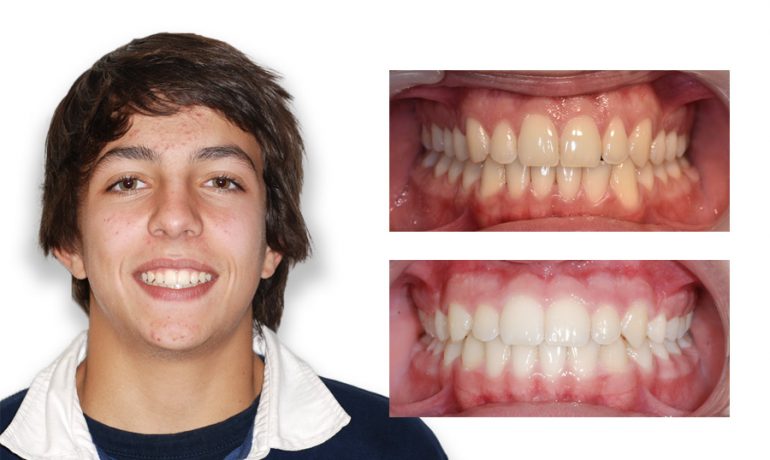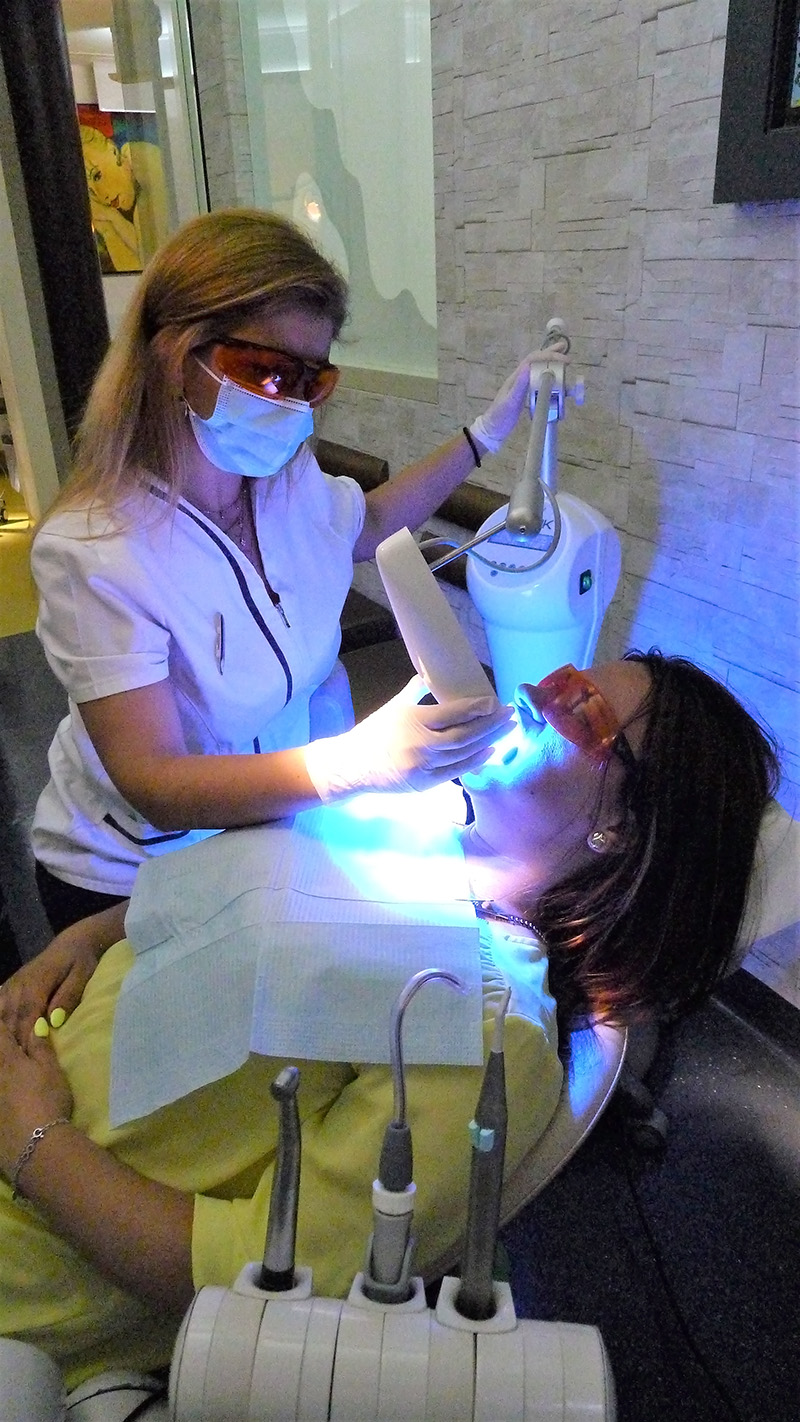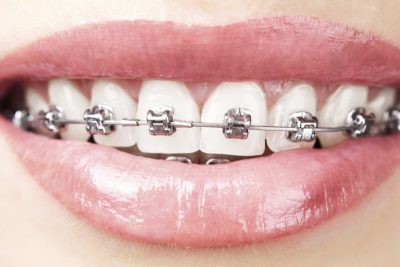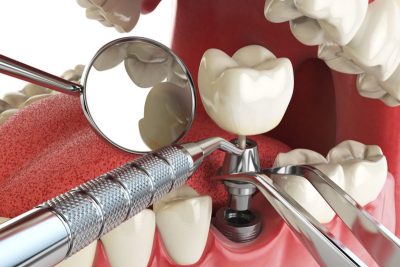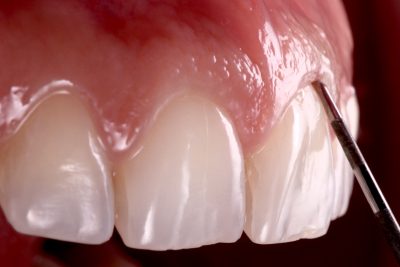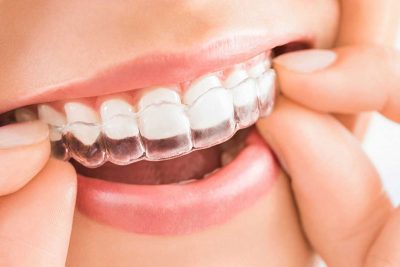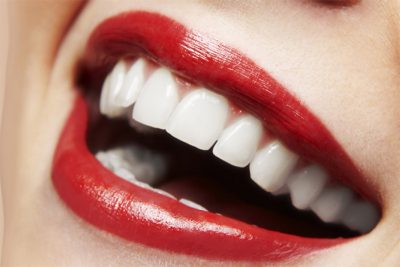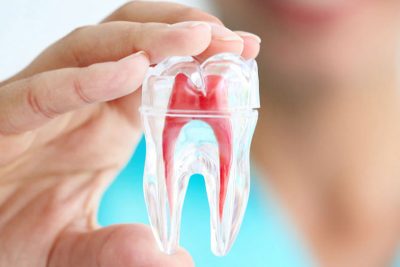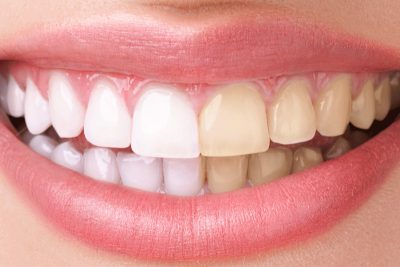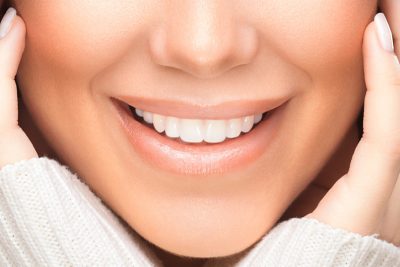Home » Treatments » Dental whitening
Dental whitening
Dental whitening allows you to whiten your natural teeth color without damaging and can be done in many ways.
Although teeth darken with age, some people naturally have yellowish teeth.
The original color of the teeth may darken due to numerous reasons such as tobacco, coffee, certain foods and tartar buildup.
Whitening contributes significantly to the improvement of dentofacial aesthetics and is indicated whenever looking at the mirror there´s a disharmony between the yellowish color of the teeth and the whitish color of the sclerotic of your eyes.
Common questions
As long as the usage is correct and the proper precautions are taken, it allows surprising outcomes.
Whitening can be done periodically as long as it is indicated and applied by an oral health professional using certified products (there are many such over-the-counter items that are ineffective and unclear to control).
Today’s whitening products don’t damage or erode teeth, such as old silica-based products that achieved the desired effect with some tooth surface wear. In fact, the new products have fluoride and potassium nitrate which reduce sensitivity and prevent caries, in addition to stabilizing color.
The whitening product is a chemical compound of hydrogen peroxide or carbamide peroxide.
The whitening gel, being in contact with the tooth surfaces, penetrates the enamel and dentin, oxidizing the pigments and causing a whitening discoloration.
At ORTOPÓVOA we perform two types of whitening:
– internal whitening consisting of placing a whitening gel into a tooth over a period of successive consultations. It is indicated for teeth that have darkened due to incomplete endodontic devitalization or trauma that has caused blood to leak and darken the tooth.
– external whitening done in the clinic by a professional or at home by the patient.
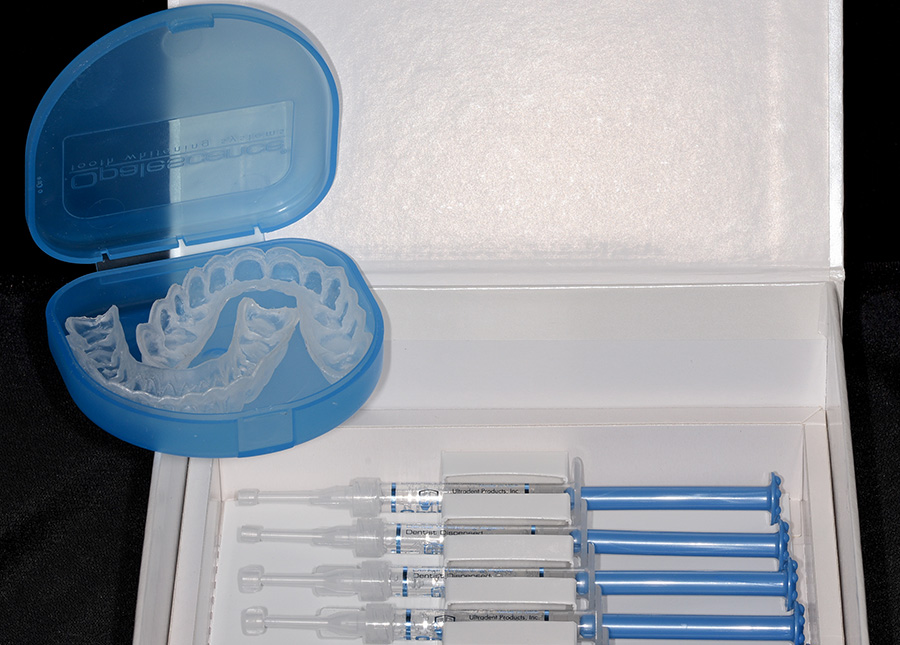
At ORTOPÓVOA, we do it in one session with a special whitening light. At home, the whitening gel is placed in plasticized material trays that the patient introduces into the mouth for a certain period of time.
We advise our patients to do professional external whitening in the clinic and to use the trays at home as reinforcement. In that way, we get more effective and long-lasting whitening.
Whitening is not indicated in people with periodontal disease, particularly those who expose part of the root of the teeth as severe gingival retraction, as they would experience significant painful sensitivity. When there is a small gingival retraction, the professional has a way around the problem with a careful adaptation of the trays to the crowns of the teeth.
For the same reason, patients who have untreated caries should prior to whitening restore the affected teeth. Whitening is also not advisable in patients with restored teeth with composite resin, as the tooth will be whiter than the restored one. Although there are no known effects, whitening is not advised for pregnant women or breastfeeding mothers.
However, the use of a whitening agent may cause temporary tooth sensitivity. If, however, you feel too much sensitivity, it is important to reduce the application time of the trays or the time of incidence of the photo activated whitening light. Even so, if painful sensitivity occurs, a fluoride-potassium-based desensitizing gel may be used to relieve symptoms.
During the whitening, Ortopóvoa recommends the use of desensitizing toothpaste.
This question is difficult to answer because it depends on the patient´s eating and social habits.
If there are no smoking habits or ingestion of teeth-staining liquids, whitening will last for many years.
However, we can say that, on average, whitening can last from one to four years.

